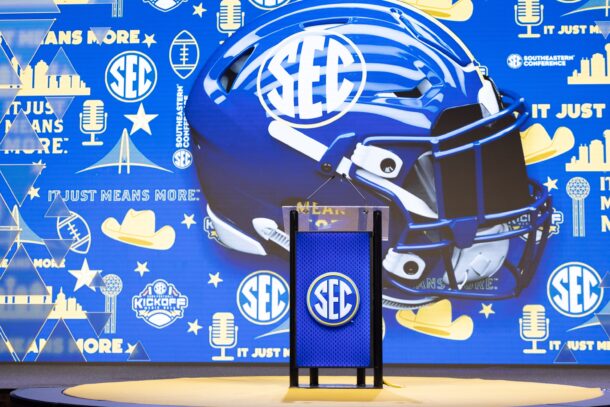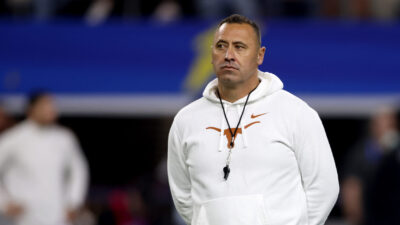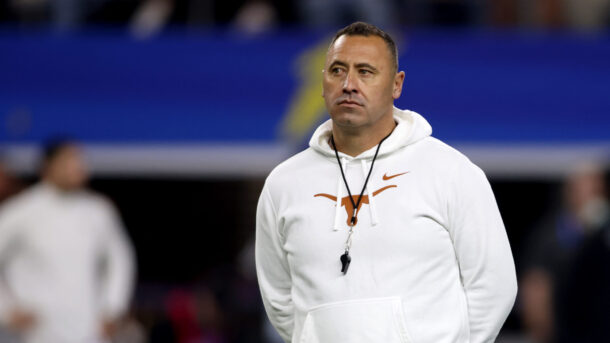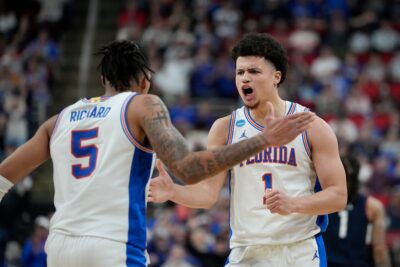Ad Disclosure
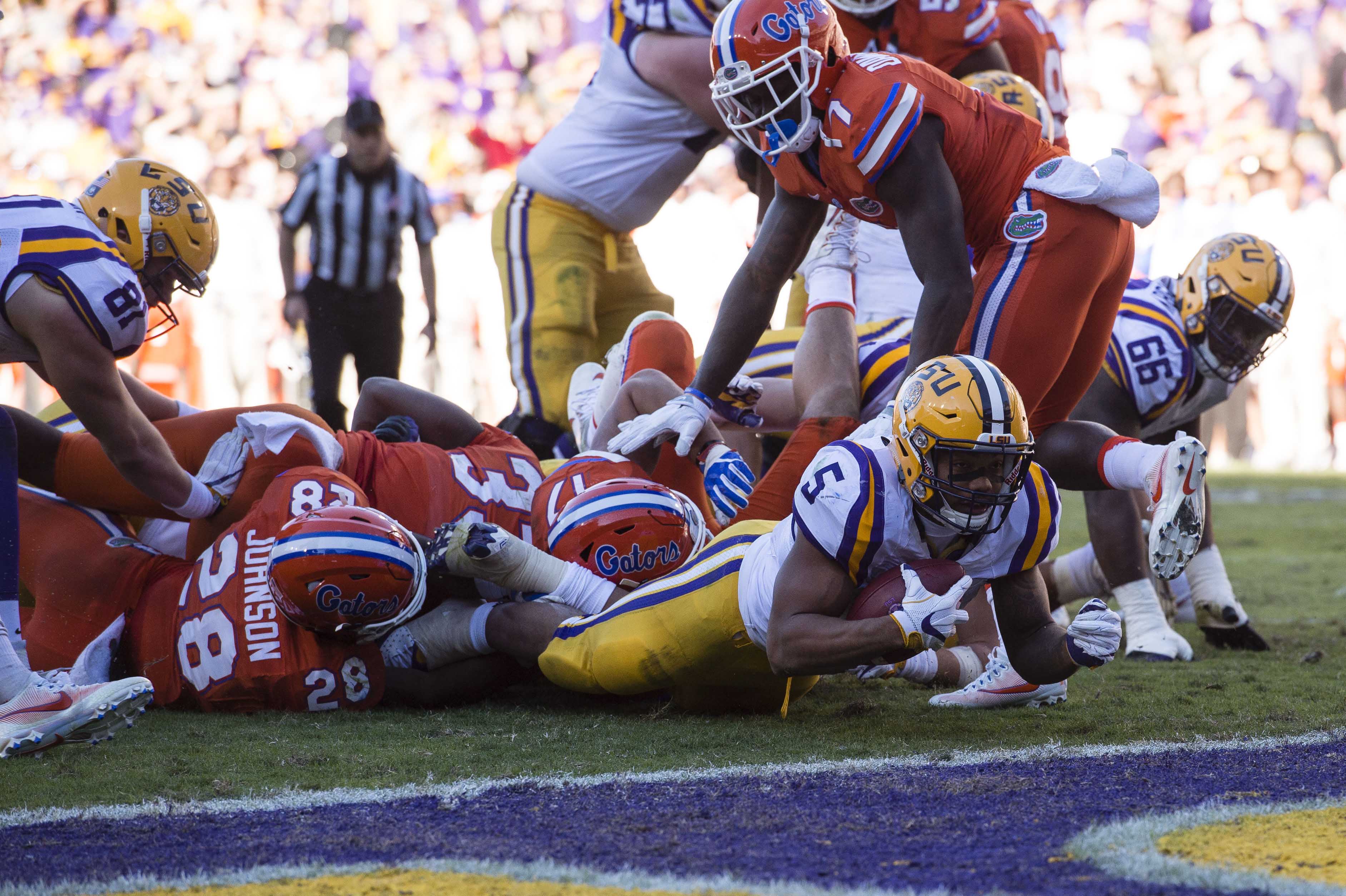
LSU review: Tigers stumble, fumble away Sugar Bowl, Orgeron’s job
By Gary Laney
Published:
You have to feel for Ed Orgeron.
He has come close to two of the plum jobs in college football, at USC and LSU, but hasn’t broken through in games pivotal to his chances.
Orgeron is not completely dead for the LSU job — after all, the Tigers landing the likes of Jimbo Fisher (the apparent front-runner) or Tom Herman seems anything but guaranteed — but most likely, Saturday’s loss has sealed his fate.
And the elegy to his coaching career could end up being that he was a hell of a contender, but not a finisher.
In his first job, at Ole Miss, he lost any chance for a fourth year with a 17-14 loss to Mississippi State in the Egg Bowl in 2007. Then in 2013, as interim coach replacing the fired Lane Kiffin at USC, he came into the UCLA game with the Trojans rolling and the job perhaps within his grasp, but lost 35-14.
And on Saturday, LSU lost to Florida, 16-10, at home in a game many suspect will keep him from getting the “interim” title lifted in Baton Rouge. If he had won, he may well have been going to Texas A&M next week with a chance to lead the Tigers to the Sugar Bowl and lead himself to the job.
So it’s perhaps perfect symbolism that he lost his chance to finish because his team could not finish in the red zone. The Tigers made it there five times and managed a touchdown, a field goal, a fumble, a botched field goal and a denial on a goal-line stand as time expired.
LSU and Orgeron could not finish the deal.
5 takeaways
1. No, the offense wasn’t shut down: LSU’s offensive meltdowns in recent years have mostly come in games where the Tigers would go from pretty good to inept, like this year’s 125-yard performance in the 10-0 loss to Alabama.
That wasn’t the case here. Going up against a good albeit short-handed Florida defense, LSU spent most of the day marching up and down the field for a respectable 423 yards of offense. But the Tigers simply didn’t complete drives. In addition to the goal-line stand at the end, they fumbled one drive away (Derius Guice), had a botched field goal when holder Josh Growden could not handle a low snap, and settled for a field goal after a quarterback sack on second-and-goal.
This was a different type of offensive inability. The running game, while lacking a healthy Leonard Fournette, was OK. Danny Etling had a fair day throwing the ball against a very good secondary. But the Tigers simply were not finishers.
2. Offensive line deficiencies showed up: With two plays to gain one yard to win the game at the end, LSU failed to push it across on runs by fullback J.D. Moore and Guice.
At key points Saturday, Florida won the line of scrimmage. It wasn’t the blowout the offensive line suffered at the hands of Alabama, but Florida won the big plays.
3. A lack of physicality in middle of defense: When Kendell Beckwith, LSU’s 245-pound inside linebacker, went down with a leg injury in the second quarter and did not return, the Tigers all of a sudden were very small on defense, and Florida took advantage.
Beckwith was replaced by 212-pound junior Donnie Alexander and with 308-pound nose tackle Greg Gilmore, Alexander and 230-pound inside linebacker Duke Riley, the Tigers were a little light up the middle. UF punished LSU’s defense with physical runs by Jordan Scarlett, who finished with 108 yards on 22 carries, and Lamical Perine, whose 22-yard run while carrying several tacklers was one of the day’s most impressive plays.
It’s amazing how the loss of one player can significantly impact a group’s identity.
4. Tough day for Donte Jackson: This will be a game Donte Jackson will want to forget. The talented sophomore cornerback was burned by Tyrie Cleveland on a 98-yard touchdown pass from Austin Appleby that accounted for 36 percent of Florida’s total offense.
Jackson also fumbled on a kickoff return, setting up the final of Eddy Pineiro’s three field goals.
Those 10 points made the difference.
Jackson is a good young player, but he will want to forget this day.
5. Nothing special: With Jackson’s fumbled return, a botched snap on a field goal attempt and a 36.7-yard punting average for Josh Growden and maybe LSU’s worst game of the season covering kickoffs (a 33-yard return by Teez Tabor and another return with an LSU personal foul at the end of it), this was one of LSU’s worst special teams games of the season.
It was a game of few possessions and long drives, so special teams play was a big factor. And the Tigers lost that match-up decisively.
Report Card
Offense: C- — As noted above, this wasn’t the worse day for the offense in most areas.
The Tigers moved the chains, ran the ball reasonably well (despite a gimpy and mostly ineffective Fournette) and got a decent outing from Etling, who was 14-for-25 for 200 yards and no turnovers.
But the Tigers’ inability to finish drives — five trips to the red zone yielded one touchdown and a field goal — makes this a below-average day.
Defense: B- — One 98-yard play turned this from a dominant performance to just a decent one.
Indeed, if you take away the long bomb Jackson gave up, Florida could get nothing going in the air. A disappointment for LSU is that the Gators were able to sustain some drives in the second half, basically by running right at the Tigers after Beckwith went out.
But giving up 270 yards and only one touchdown is, again, a more than acceptable performance.
Special Teams: F — If the special teams had just an average game, LSU wins this one. And most of the things that made this such a bad special teams day were things completely in the Tigers’ control: A botched field goal. A fumble on a kickoff return. A personal foul on kickoff coverage.
These were all critical mistakes.
Besides one 43-yard punt by Growden to the Gators’ 1-yard line, there wasn’t a special teams play that made a positive impact for LSU.
Coaching: C- — When you lose a close game you are supposed to win, it always comes down on the coaches. Second guessing comes with the territory.
And there can be some second guessing here. With four plays to try to score from the 7 in the game’s final minute, perhaps LSU should have gone to a play-action pass at least once. Instead, they ran the ball up the middle on the last four plays.
I also heard criticism that when Beckwith went out, the coaches failed to try to adjust by bringing in more physical freshman players — 333-pound nose tackle Ed Alexander or 255-pound linebacker Devin White — to combat the Gators’ run game.
Those may be fair arguments.
But overall, I thought LSU pushed mostly the right buttons. The Tigers dialed up plays that moved the chains. The defense got the job done outside of one bad play. They managed the clock perfectly at the end. They just couldn’t come up with the winning play-call.
Overall: D — LSU dominated this game outside of a handful of catastrophic mistakes.
But there was too much on the line here for the Tigers to make those mistakes. In Florida, you had a team that “lost” about three-quarters of the plays, but when they “won” a play — whether it was a 98-yard touchdown or a goal-line stand — they made it count.
LSU, at the end of the day, couldn’t make a play when it counted.
Game Plan
The Tigers’ approach was pretty typical of them since Orgeron became the coach: LSU got after the Gators’ run game and forced Appleby to try to beat them with his arm. Aside from one play, it worked (Appleby was just 7-for-17 for 144 yards). The run defense was hampered by the injury to Beckwith, but ultimately, it held up.
On offense, the Tigers set up the pass with the run, as usual, but threw on enough running downs to keep the Gators honest. It worked well as the Tigers beat Florida’s per-game average yards allowed by 157 yards.
Game Balls
DE Arden Key: The sophomore recorded his 10th sack of the season as part of a career-high eight-tackle day that included two tackles for loss.
WR D.J. Chark: The Tigers’ third receiver had a solid day, providing 97 yards on just five touches, including receptions of 30 and 16 yards, and a speed sweep run of 29 yards.
DB Dwayne Thomas: The senior continued his solid play at the end of the season with two tackles for loss, including a sack, in a four-tackle day.
